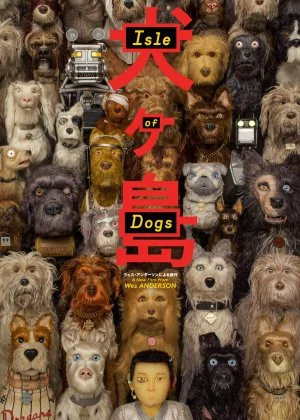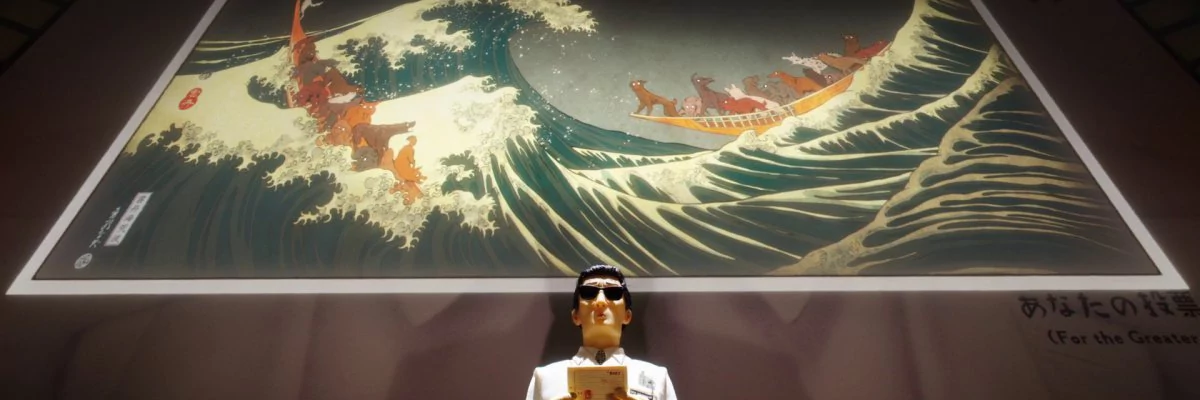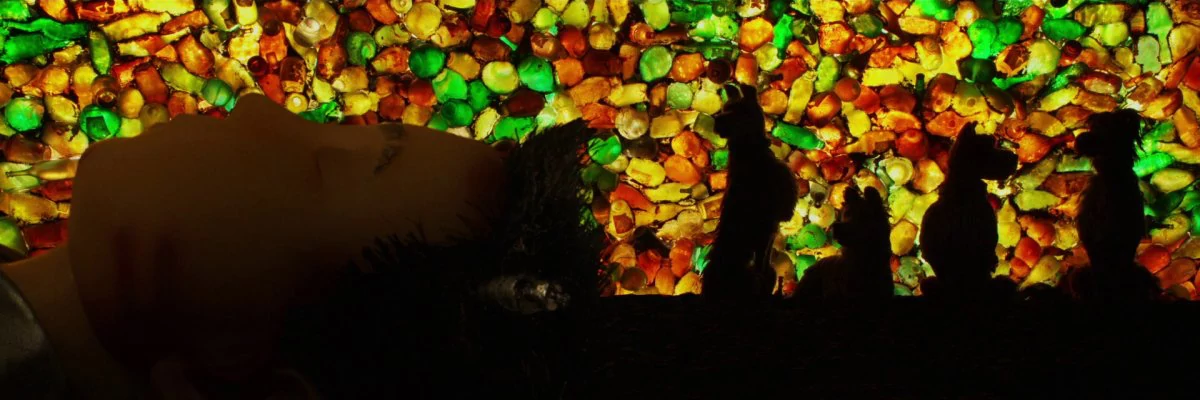Isle of Dogs

Wes Anderson has a new film (as if you didn't know already). His films are a big deal nowadays, so whenever Anderson announces a new project the world takes notice. Isle of Dogs (or is it really I Love Dogs?) is his 9th feature and for some reason, it may be one of his most divisive yet. I found it to be one of his best, one of the purest crystallization of what sets Anderson's work apart from other filmmakers. But don't take my word for it, it's really best you see it for yourself.

Wes Anderson is probably at the point in his career where he always longed to be. It appears he can now freely and effortlessly make the kind of films he truly loves to make, even though these projects have virtually no market appeal beyond the Anderson brand. It's a small miracle he got Isle of Dogs, a stop-motion animation about an isle of exiled dogs set in a futuristic/alternate Japan, off the ground. Kudos to Anderson for making it happen though, it's with films like these you can make your mark on history.
Anderson's love for stop-motion is nothing new, he already showcased his affection when he made Fantastic Mr. Fox. It's not a big stunner either, considering how much control it gives him over the framing and balancing of his shots. His love for Japan and its cinema however is a new element in his oeuvre. So far his films have always felt overtly American, even when he moved the setting elsewhere. Isle of Dogs is a little different, as it feels like a more sophisticated blend between Anderson's trademark style and Japanese influences. As a fan of both Anderson and Japanese cinema, it's somewhat of a match made in heaven.
The story is set in Megasaki, a city governed by the descendant of a dynasty of cat lovers. Dogs are considered inferior and when they start showing signs of dog flu and snout fever, infectious diseases that threaten the human population, the major of Megasaki draws up a plan to exile all dogs to an offshore island. To set an example, the major exiles his adopted nephew's bodyguard dog. Atari, as the boy is called, can't get over the loss of his trusty pall and sets out to retrieve him, venturing deep into a world taken over by canines.

In a time when stop-motion is starting to look more and more like regular CG (I'm looking at you Laika), I was glad to see that there are still people left who prefer the scruffier, less polished version of this animation technique. That's not to say Isle of Dogs looks bad in any way, on the contrary. The level of detail is astounding, the cinematography is spot-on and the sets are amazing. Anderson creates a visually exciting, inventive, and intense universe, with every single minute detail taken care of. It's rare to see stop-motion done this well, so at the very least that is something to be treasured.
The soundtrack is good, varied, and used with purpose. It offers a nice mix of American and Japanese influences that aptly support the atmosphere of the film. It's not excessively unique or defining, but it has character and isn't afraid to dominate a scene when needed. It's the voice acting that has a bigger overall impact though. While the dogs are all voiced by (famous) American actors, the Japanese characters are voiced in Japanese, often without providing subtitles. Some of the conversations are translated (by on-screen interpreters and other contextual sources), but unless you speak some Japanese, know that you'll miss out on parts of the conversation.
The voice actors themselves do a great job. Some of the voices are recognizable (like Edward Norton's or Scarlett Johansson's), but they never dominate their parts. It never feels as if these actors were chosen merely for their star appeal either, instead they all add something substantial to their characters. That's in part due to Anderson's somewhat stilted, dry pan dialogues, which are delivered without the usual mannerisms of their respective actors.

Isle of Dogs is a typical Anderson film. One that is extremely stylized, really particular in its execution, and very direct in its references. Which, apparently, is okay as long as Anderson sticks with America's own cultural legacy (or possibly just "white" cultural legacy - whatever that may be - because I didn't hear many people complain about the comical and insensitive portrayal of The Grand Budapest Hotel's European setting). Instead of being able to share the joy of this film with the rest of the world though, I quickly hit waves of cultural appropriation-themed discussions dominated by a small group of Asian-American minorities.
But Isle of Dogs is no Last Samurai, it's no Memories of a Geisha and it's not on the same page as Scorsese's Silence. If people want to feel offended and be up in arms when a director pays homage, caricaturizes, or absorbs other cultures than his own, they have every right to do so. I am going to stop bothering with those conversations though, as I find them restrictive, counter-productive, and painfully self-absorbed.
Wes Anderson did an amazing job injecting his trademark style with Japanese influences. It's a combination that didn't make much sense on paper, but the result is nothing less than spectacular. If it's narrative and plot you're after Isle of Dogs may be a little flimsy, but when you're longing for craft, wit, and passion then Anderson's latest has you covered. It's up there with my favorite Andersons and may well grow out to become one of his most definitive films. The US could use more directors like Anderson, not less.